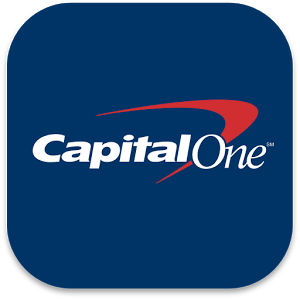The Capital One Venture is now one of the best travel rewards credit cards on the market.
That’s because Capital One recently made changes to its rewards program and now allows for one to one transfer ratios to some great travel partners. They also added some new travel partners and will be opening up airport lounges very soon as well.
But what type of credit score is needed to get approved for the Capital One Venture? And what type of starting credit limit can you expect if you are approved?
In this article, I will break down the credit score requirements to help give you a sense of your approval odds and also provide you with some insight into getting approved for Capital One cards.
Table of Contents
Credit score needed for approval
Generally speaking you want to have a credit score of at least 700 before you apply for the Capital One Venture.
However, as shown by some of the data points below sometimes you can get approved with a credit score under 700. Also, sometimes having a great credit profile is NOT the best way to get approved for Capital One cards, including the Venture. (I will explain more below.)
Tip: Use WalletFlo for all your credit card needs. It’s free and will help you optimize your rewards and savings!
Capital One Venture overview
Before jumping too deep into all of the data points and the approval process, it’s a good idea to know what type of value you can expect with the Capital One Venture. Often, you can find this card offering a pretty strong welcome bonus, sometimes up to 100,000 miles!
Typically, to earn this 100,000 mile bonus you will need to spend a lot of money (e.g., $20,000) over a long duration such as 12 months. If you are not able to meet the higher spend threshold, you usually can still earn a smaller amount of miles such as 50,000 miles with a much lower amount of spend (e.g., $3,000).
The Capital One Venture earns 2X miles on every purchase. This is a great bonus structure for people who don’t want to worry about rotating categories or multiple bonus categories. Every purchase on your card earns the same 2X.
Now that you can transfer your miles out to various programs at a ratio of 1 to 1 this means that you are effectively earning 2 miles per dollar spent for those programs. If you value the miles for those programs at around 1.5 cents per point then all of a sudden you are now earning ~3% on every purchase. That is a pretty exceptional earning rate.
The Capital One Venture also comes with a $100 TSA Pre-Check or Global Entry credit.
The annual fee for the Venture is $95. That is a pretty typical annual fee for a card that offers the ability to transfer miles to various travel partners. The good news is that if you spend $3,166 in a year and you value your miles at around 1.5 cents per mile then you will completely offset the annual fee at that point with spend alone.

Capital One approval process
Capital One is a pretty unique bank when it comes to credit card applications. Because they do things a little bit differently you definitely want to know what you are getting yourself into before you apply.
Capital One pulls all major credit bureaus
First, Capital One likes to pull all three major credit bureaus whenever you apply. This means that you will most likely get a hard pull on your credit report for: Experian, Equifax, and TransUnion.
This is one of the drawbacks of applying for a Capital One card because most other banks only pull from one or two bureaus at a time. And some banks such as American Express may not even pull from any bureaus.
This does not mean that you should never apply for a Capital One card but it does mean that you should expect a temporary ding on all of your credit reports if you apply.
Note that this method of pulling all three credit bureaus can actually work in your favor in some cases as I will explain below.
Related: How Long Do Hard Inquiries Stay on Your Credit?
Capital One sometimes declines people with great credit
The next thing to note is that Capital One will often decline people with spotless credit profiles.
If you do enough research you will find plenty of data points where individuals have been denied Capital One credit cards despite having credit scores near 800, flawless payment history, and super-low utilizations. It is one of the biggest complaints credit card enthusiasts have about Capital One.
Related: Capital One Credit Wise Review
Why exactly is this the case?
Many people speculate that Capital One is more interested in applicants that don’t have spotless credit histories, especially when it comes to utilization.
This is because those type of applicants will be more likely to pay interest on their credit card bills every month.
That interest can be a major revenue source for Capital One over time so they may be more interested in approving those applicants over people who have a firm grasp on how to avoid interest.
What does this mean for your credit card strategy?
If you have a spotless credit history and your credit score is very high or perhaps even a perfect credit score then one suggestion could be to purposely have a high utilization for a couple of months before you apply.
So let’s say your utilization is typically 5% every month. In that scenario you may want to increase that utilization to somewhere around 20% to 30% for a couple of months. That is because this may signal to Capital One that you are an applicant who is more likely to pay interest.
If you are going to go this route then make sure that you do not have any credit needs during the couple of months you are doing this because your credit score will likely take a noticeable hit. Also, make sure not to go too crazy with increasing your utilization because you don’t want your credit score to completely tank.
And remember if you go this route you can still completely avoid paying any interest. The key to this method is to simply let your statement close with a higher balance but then pay off that balance completely when your bill is due.
Related: Capital One Amazon Offers & Discounts Guide
Credit score data points
Below, you can find a number of data points that we found after doing a lot of online research. The first several data points have self-reported information related to the applicant’s credit score.
It’s important to remember that people may sometimes inaccurately report their credit score but these data points do give us at least some type of data to look at so I believe they are helpful.
You will notice that some applicants had credit scores in the lower 600s such as in the 620s. However those applicants also had credit scores at or near 700 in at least one of the bureaus.
So if you happen to have one bureau with a pretty low score there still may be hope for you if your other bureaus have higher scores. (This is the one positive of Capital One pulling from all three credit bureaus.)
- Credit Score Details: Experian 671
- Approval Date: 03/01/2020
- Credit Limit: $5,000
- Credit Score Details: 750sh on all Bureaus
- Credit Approval: 01/09/2019
- Credit Limit : $5,000
- Credit Score Details: Transunion 628/Equifax 705
- Credit Approval: 02/20/2018
- Credit Limit: $15,000
- Credit Score Details: Transunion 714/Equifax 715/Experian 618
- Credit Approval: 10/14/2017
- Credit Limit: $12,000
- Credit Score Details: Transunion 706 (FICO 8)/Equifax 775 (FICO 8)/Experian 700 (FICO 8)
- Credit Approval: 07/29/2017
- Credit Limit: $10,000
- Credit Score Details: Transunion 675/Experian 682/Equifax 679
- Credit Approval: 04/05/2018
- Credit Limit: $15,000
- Credit Score Details: Equifax 691/Transunion 626/Experian 664
- Credit Approval: 08/06/2018
- Credit Limit: $9,000
- Credit Approval: 12/30/2018
- Credit Limit: $15,000
- Credit Approval: 03/20/2020
- Credit Limit: $5,000
- Approval Date: 07/28/2019
- Credit Limit: $15,000
- Approval Date: 03/27/2019
- Credit Limit: $5,000
- Credit Approval: 02/11/2020
- Credit Limit: $5,000
Related: Chase Sapphire Preferred Credit Score & Income Needed for Approval
Credit limit increases?
In my personal experience, Capital One has been one of the most generous with credit limits. Still to this day they are the bank that set me up with my highest starting credit limit which was over $25,000.
The credit limit you are given will depend on a combination of your credit score and income. To maximize your credit limit with Capital One I have two recommendations.
The first is to make sure you are reporting all of the available income you can on your credit card application. There is something called accessible income which allows you to report income available to you from people like your parents or a spouse.
My second recommendation is that if you are not pleased with your credit limit then you should look into requesting a credit limit increase. Capital One can be a bit stingy with credit limit increases but it does not hurt to give it a shot since it will not affect your credit report.
Final word
With the new changes to the Capital One rewards program, all of a sudden Capital One cards are actually a lot more valuable. Getting approved for a card like the Venture can be a little bit tricky just because Capital One sometimes prefers applicants who are more likely to pay interest. You might be able to get around this by temporary increasing your utilization but just be careful that you are not hurting your odds for other credit you might need during that time.
Daniel Gillaspia is the Founder of UponArriving.com and the credit card app, WalletFlo. He is a former attorney turned travel expert covering destinations along with TSA, airline, and hotel policies. Since 2014, his content has been featured in publications such as National Geographic, Smithsonian Magazine, and CNBC. Read my bio.


